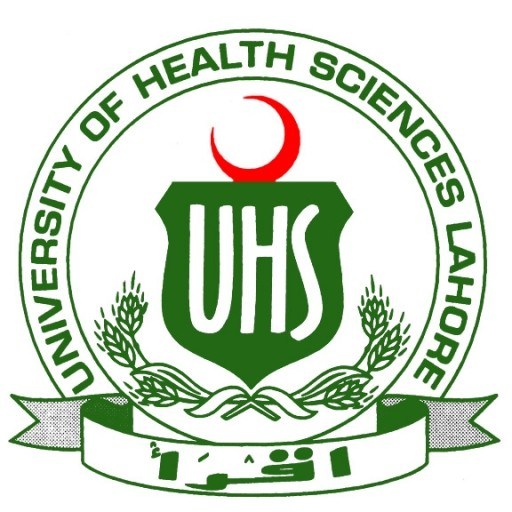Photos of university / #Princeton
The Office of Population Research, founded in 1936, is the demographic research and graduate training center at Princeton University. The field encompasses a wide range of specializations that span substantive and methodological subjects in the social, mathematical, and biological sciences. Building on its historical strengths in signature fields such as demographic methods, fertility, health and mortality, OPR researchers have embraced fields that are currently prominent in population studies, such as international migration and development, children, youth and families, as well as various aspects of social and economic inequality. In addition, OPR researchers are involved in new fields of inquiry such as epigenetics, biodemography, social epidemiology, and web-based experimentation.
The graduate training program in population studies offers four types of certification. First, the Program in Population Studies (PIPS) offers a Doctor of Philosophy (Ph.D.) degree in demography that is designed for students who wish to specialize in the core substantive topics and technical methods.
Second, students may also obtain a joint degree in Demography and Social Policy via a collaborative training program through the Woodrow Wilson School of Public and International Affairs and the departments of Politics, Psychology, Population Studies, and Sociology. Students interested in the joint degree in Population Studies and Social Policy have the option of applying to the JDP at the time of their initial application to the Princeton Graduate School or transferring into the program after their first or second year of graduate study with the permission of the director of graduate studies for the Program in Population Studies.
Third, the program offers a general examination in demography that is accepted by the Department of Sociology as partial fulfillment of their degree requirements. Students from Sociology who elect to specialize in population write their dissertation on a demographic subject under the supervision of core faculty in population studies.
Fourth, the program offers a nondegree certificate in demography upon completion of three graduate courses and a supervised research project. This option is also available to visiting scholars.
Courses:
Students are required to take the following courses:
- POP 501/ECO 571/SOC 531 – Survey of Population Problems
- POP 502/ECO 572/SOC 532 – Research Methods in Demography
- POP 503 - Evaluation of Demographic Research
- SOC 506/POP 506 – Research Ethics & Scientific Integrity (a half-semester course)
- Statistics sequence (Year 1, two full-semester courses)
- Population courses (four full-semester courses)
Language(s):
Students must demonstrate a proficiency in a foreign language before the end of their third year.
Pre-Generals Requirements(s):
In the first year, students are required to take a demography general exam that covers theory, substance and research methods. During the second year, but no later than fall of the third year, students are required to complete two additional field exams on topics approved by the director of graduate studies (DGS) in OPR. Students in the joint policy and population program take one of these exams in social inequality.
Notestein Seminar
Attendance at Tuesday afternoon Notestein Seminar Series is required during all five years of study.
General Exam:
The general examination consists of three examinations, usually taken during the course of the first two years of study, in which the student must demonstrate proficiency in basic demographic theory and methods as well as proficiency in two additional fields of concentration which could include: economic demography, family demography, fertility/fecundity, health, social epidemiology, reproductive epidemiology, historical demography, mathematical/statistical demography, migration/immigration, mortality, population and development, population and environment, population policy, poverty/child wellbeing, and urbanization, among others.
Qualifying for the M.A.:
The Master of Arts (M.A.) degree is normally an incidental degree on the way to full Ph.D. candidacy and is earned after a student successfully passes the general examination. It may also be awarded to students who, for various reasons, leave the Ph.D. program, provided that candidacy requirements have been satisfied.
Teaching:
All graduate students are required to assist in teaching for a total of six hours (undergraduate- or graduate-level course). Courses must be approved by the DGS of Population Studies.
Post-Generals Requirement(s):
Students are required to complete two publishable empirical papers in years two and three of their training program.
Notestein Seminar Presentation
Students are also required to give a Notestein Seminar presentation based on their dissertation during their last year in the program.
Dissertation and FPO:
A dissertation prospectus, which includes an oral hearing, must be completed by September 30 of year four. The oral hearing for the prospectus involves the three core members of the dissertation committee. Students who have successfully completed the required general exams, had a dissertation prospectus approved, and fulfilled all other department degree requirements, will submit a dissertation based on original research. This research is supervised by a committee of at least three faculty members, including at least one demography faculty who will serve as either chair or co-chair of the committee. Departmental acceptance of the dissertation qualifies the candidate for the final public oral (FPO) examination.
The FPO is a final examination in the student’s field of study as well as a defense of the dissertation and may be held after the review and acceptance of the reader reports and substantiation that all other requirements have been met. The FPO is largely based on the dissertation, but also can extend to other topics in population studies to confirm the candidate’s readiness for a career in demography.
There are at least three principal examiners at the FPO, all of them normally members of the Princeton faculty at the rank of assistant professor or higher. At least two of the examiners have not been principal readers of the dissertation, and either the chair or a co-chair must be a core demography faculty member.
- Statement of Academic Purpose
- Resume/Curriculum Vitae
- Recommendation Letters
- Transcripts
- Fall Semester Grades
- Prerequisite Tests
- English Language Tests
- GRE : General test
- Application Fee: $90
Want to improve your English level for admission?
Prepare for the program requirements with English Online by the British Council.
- ✔️ Flexible study schedule
- ✔️ Experienced teachers
- ✔️ Certificate upon completion
📘 Recommended for students with an IELTS level of 6.0 or below.
For Ph.D. candidates, tuition and fees during a student’s regular period of enrollment are provided in full from a student’s graduate student financial support, in the form of tuition support from fellowships, assistantships, or external sources.
The annual stipend amount provided to Ph.D. candidates during their regular enrollment is intended to support a single graduate student based on estimated costs. Master’s students or students with spouses and/or dependents may require additional resources to support their living expenses










